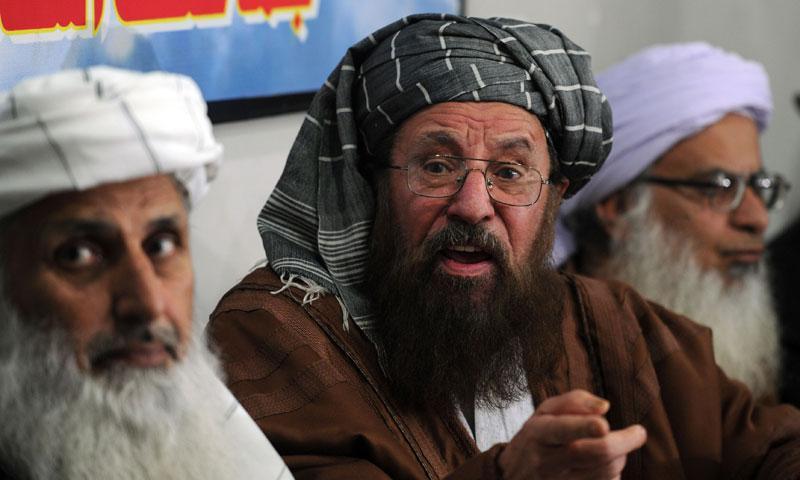ISLAMABAD: Negotiators for the Pakistani government and the Tehreek-i-Taliban Pakistan (TTP) met Thursday for a first round of peace talks aimed at ending the militants’ bloody seven-year insurgency.
The two sides gathered at the Khyber Pakhtunkhwa House in Islamabad for a preliminary meeting to chart a “roadmap” for future discussions, amid deep scepticism over whether dialogue can yield a lasting peace deal.
Following the meeting which lasted almost four hours, Maulana Samiul Haq read out a joint statement to the media.
According to the press release, the two sides met under a cordial environment.
The government committee demanded that talks be held within the framework of the constitution, and that the scope of the peace talks be limited to only the insurgency-affected areas of Pakistan.
The government committee also said that all activities which may affect peace efforts should immediately be stopped, and that talks should be smoothly concluded in a short timeframe.
Referring to the 10-member Taliban monitoring committee, the government negotiators sought clarification regarding scope and authority of both TTP teams.
On the other hand, the Pakistani Taliban committee urged the government to clarify the mandate and level of authority of its four member committee, and its ability to implement a peace pact.
The Taliban team also demanded that their meetings be held with Prime Minister Nawaz Sharif, the army chief and the DG ISI.
Journalists were not allowed to ask questions following the joint press release.
The government’s negotiators include Irfan Siddiqui, special assistant to the prime minister and coordinator of the committee, Rustam Shah Mohmand, a former Pakistan ambassador to Afghanistan, Peshawar-based journalist Rahimullah Yousufzai and retired Major Amir Khan.
Negotiators from the TTP’s side include Maulana Samiul Haq, Maulana Abdul Aziz and Professor Mohammad Ibrahim.
Initial peace talks failed to get under way Tuesday when the government delegation refused to meet the militants’ negotiators, citing confusion about the make-up of their team.
The TTP had initially also nominated Pakistan Tehrik-i-Insaf (PTI) chief Imran Khan and former Jamiat Ulema-i-Islam (JUI-F) lawmaker Mufti Kifayatullah in their committee. However, both later refused to be part of the committee.
In a statement Tuesday, the TTP spokesman Shahidullah Shahid said that Mualana Samiul Haq and his two colleagues had their blessing to go ahead with the negotiations without Khan or Kifayatullah.
“The three-member committee is final now and we have our full confidence in it to hold talks,” he had said.
The Taliban committee is now expected to travel to Waziristan to convey the progress of the negotiations to the TTP leadership.
















































